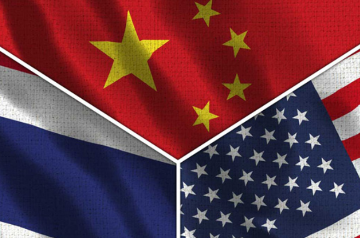
Atal Bihari Vajpayee’s Kashmir policy is perhaps one of the stellar achievements of his tenure as the Prime Minister of India. His approach to the problem of Kashmir was pragmatic and practical. With a single stroke of eloquence, he changed the tone of New Delhi’s narrative on Jammu and Kashmir. His slogan of Kashmiriyat, Insaniyat, Jamhooriyat (inclusivity culture of Kashmir, humanitarianism and democracy), given in 2003, has now become a cornerstone of the forces of reconciliation in the State. Every mention of these three magical words evokes a tremendous response in the Valley.
Vajpayee’s slogan was neither merely a rhetorical statement nor was it a poet's rhythmic juggling of words. It was an identifier of a prudent Kashmir policy, which created a window for peace and an opportunity to evolve a lasting political solution of the Kashmir issue. It was the seriousness of Vajpayee’s Kashmir policy which dealt blow after blow that weakened the insurgency and the Hurriyat, thus outmanoeuvring the Pakistan army’s plan in Kashmir.
For the first time since 1947, an Indian Prime Minister was willing to seek a solution to the Kashmir problem even outside the domain of the Indian Constitution. It was a symbolic gesture which provided an opportunity to the moderate faction of the Hurriyat to enter into talks with the government of India. The dreaded militant outfit, Hizbul Mujahideen, split into two, with the faction led by Majid Dar surrendering for peace negotiations. The surrender was instrumental in young Kashmiris realising the futility of the gun and effectively rejecting it until 2015, when a new cycle of militancy began in the State.
Vajpayee’s slogan was neither merely a rhetorical statement nor was it a poet's rhythmic juggling of words. It was an identifier of a prudent Kashmir policy, which created a window for peace and an opportunity to evolve a lasting political solution of the Kashmir issue.
The ripple effect of Vajpayee’s outreach to the moderate faction of the Hurriyat was such that the latter remained divided till July 2008. Its reunification that year sparked unrest, after which stone pelting and street violence once again became the norm in Kashmir.
During Vajpayee’s tenure, the generation of Kashmiris that had grown up in the shadow of gun and violence, post the breakout of insurgency in the 1990s, witnessed a reprieve and a healing touch. The humanitarian approach of the Prime Minister suggested an acknowledgement of the pain and agony suffered by the people of Kashmir through the gun. He sought to heal their wounds, caused both by violence and historic betrayals.
Nehruvian democrats had successively pulverised democracy and electoral politics in Jammu and Kashmir by playing musical chairs with various leaders, including the towering Sheikh Abdullah. The Congress may well have created a world record with its shenanigans to subvert democracy in the State. The rigging of the assembly election in 1987 created a political vacuum which eventually sparked insurgency. The people of the State lost trust in the system and practice of democracy, felt alienated, and remained disenchanted with the electoral process for many years. As a result, the restoration of democracy was the single biggest challenge in the State.
The bold move to conduct elections in 1996 broke the spine of insurgency. And subsequently, Vajpayee’s unwavering commitment to Jamhooriyat in the election of 2002 ushered a wave of confidence through the widespread participation of the people. The scars of fraudulent elections of the past, and particularly the assembly polls of 1987, were now replaced by a new movement towards a democratic mode of expression, not just in an electoral sense but also in terms of the reconciliation of the conflict as a whole.
The bold move to conduct elections in 1996 broke the spine of insurgency. And subsequently, Vajpayee’s unwavering commitment to Jamhooriyat in the election of 2002 ushered a wave of confidence through the widespread participation of the people.
During the unrest of 2016, then serving Chief Minister Mehbooba Mufti sought a repeat of Vajpayee’s ‘healing touch’ initiative. After the 2014 parliamentary elections, the Mirwaiz saw a hope in PM Narendra Modi and, more accurately, wished to see Modi repeat Vajpayee’s policy in the State. Among the indicators of the success of Vajpayee’s Kashmir policy is that even two decades later, the politicians, the civil society, the intelligentsia and the common people of the State are looking for a repeat of it.
A former minister of Jammu and Kashmir government, remembering Vajpayee, said: “His electoral loss in 2004 (Lok Sabha polls) is considered a loss for Kashmir and South Asia. He was one PM who bonded with the sentiments of Kashmiris and scripted a new peace agenda for South Asia, establishing in the process the centrality of the sentiment of the people of Kashmir and that Kashmir can be resolved without the use of force and without redrawing borders.”
Most Kashmiris do realise the importance of Vajpayee. Cutting across political lines, there is an overwhelming recognition of the success of his initiatives. By and large, there seems to be a consensus in Jammu and Kashmir that the Vajpayee years were the best since 1947: for the State, its people, and for security and peace in the Indian subcontinent.
While analysing Vajpayee’s Kashmir policy, it is important to note that he was not a peacenik. He sought hard power for India and retaliated to every provocation that came from Pakistan. But, at the same time, he had the vision and the courage to attempt to solve one of the most complex problems of the subcontinent, and that too through peaceful means. His tenure as Prime Minister came like a whiff of fresh breeze in a violence-ridden Kashmir valley. Perhaps that is what makes him Kashmir’s favourite Indian Prime Minister.
The views expressed above belong to the author(s). ORF research and analyses now available on Telegram! Click here to access our curated content — blogs, longforms and interviews.




 PREV
PREV


